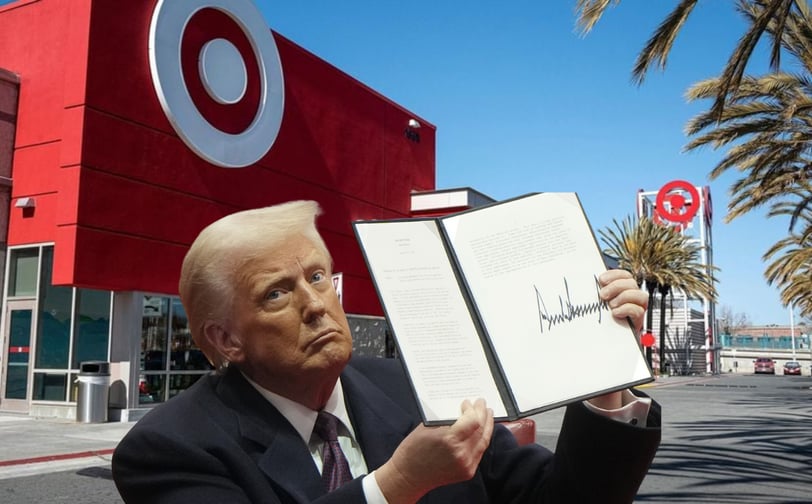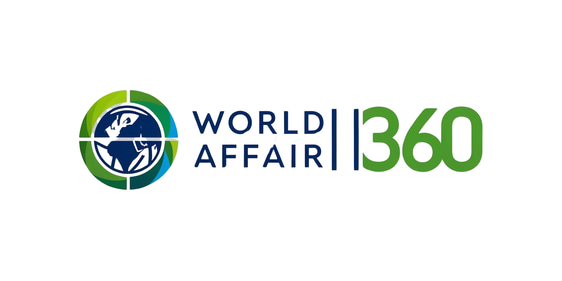Target Ends DEI Initiatives Amid Trump’s Push to End Diversity Programs
Target has announced it will end its DEI (Diversity, Equity, and Inclusion) initiatives this year, following growing pressure from conservative groups and President Trump's recent order to halt DEI programs in federal agencies. The company’s decision also includes discontinuing its Racial Equity Action and Change (REACH) initiative, which aimed to invest in Black-owned businesses. This shift is part of a larger trend, with major corporations like Walmart and Amazon scaling back similar programs. Critics argue that Target's move could alienate its diverse customer base, while supporters of Trump’s position claim such programs are discriminatory. The change signals a broader debate about the future of DEI in corporate America.
USA


Target Ends DEI Initiatives Amid Trump’s Push to End Diversity Programs
In a move that’s sending ripples through the retail world, Target has announced it will be phasing out its DEI (Diversity, Equity, and Inclusion) initiatives by the end of this year. This decision comes in the wake of increased scrutiny from conservative groups and President Donald Trump's recent executive order urging federal agencies to end DEI programs. The retail giant's move is part of a broader trend among U.S. corporations distancing themselves from diversity-focused policies, a shift that has sparked considerable debate.
What Are DEI Initiatives and Why Are They Important?
DEI programs have become a key part of corporate culture in recent years, aiming to create a more inclusive workplace by promoting opportunities for women, racial minorities, LGBTQ+ individuals, and other historically underrepresented groups. These initiatives gained significant traction following the 2020 protests in response to police violence against Black Americans. They were designed to address systemic inequalities within workplaces and help diversify industries that have traditionally been dominated by certain demographic groups.
Target, for example, invested heavily in its DEI goals through its Racial Equity Action and Change (REACH) program, with commitments to invest over $2 billion in Black-owned businesses by 2025 and support more than 500 Black-owned brands. However, amid growing political and public pressure, Target is pulling back from these commitments, signaling a shift in priorities that has caught the attention of both critics and supporters.
Trump’s Influence on Corporate Diversity Policies
The shift away from DEI initiatives is not isolated to Target. Other major companies, including Walmart, Amazon, and Meta, have also rolled back similar programs over the past year. The main catalyst behind these changes has been President Trump's directive earlier this week, which called for federal agencies to eliminate DEI programs and urged private companies to do the same, framing them as discriminatory and harmful to merit-based hiring.
Trump and conservative groups argue that DEI programs can unfairly favor certain groups over others, undermining merit and creating division within the workplace. As Trump continues to gain support for his position on these issues, more companies are reevaluating their diversity strategies, especially those in politically conservative states.
Target’s DEI Changes: What Does It Mean?
As part of its decision to end its DEI initiatives, Target is also discontinuing its REACH program and shifting its Supplier Diversity team to a more general Supplier Engagement group. The company claims that these adjustments are in response to the “evolving” landscape surrounding diversity and inclusion, reflecting both internal changes and external pressures. The retailer has not provided further commentary beyond its official statement, but the move has already drawn criticism.
Many, including Texas Congressman Sylvester Turner, argue that this decision is a misstep for Target, which has long been praised for its inclusivity and appeal to a younger, diverse consumer base. Ending DEI initiatives could alienate these customers and harm the brand’s reputation, according to some experts. Eric Schiffer, from Reputation Management Consultants, called it "brand suicide" for a company that has built its image around inclusivity.
The Bigger Picture: Is DEI the Future of Corporate America?
While Target's decision has been the subject of heated debate, it reflects a larger cultural shift happening within corporate America. On one hand, companies like Target and Costco have been recognized for their commitment to diversity, which has resonated with customers and employees alike. On the other hand, conservative critics argue that these programs create reverse discrimination, with some advocating for a more merit-based approach to hiring and promotion.
The decision to roll back DEI policies isn’t just about politics—it's a delicate balancing act between maintaining a company’s reputation, meeting customer expectations, and responding to changing political dynamics. Trump's order and the increasing pushback against DEI programs from conservative circles signal that diversity initiatives may face more scrutiny in the years to come.
What’s Next for Target and Other Corporations?
As Target transitions away from its DEI initiatives, it will likely face continued pressure from both sides of the debate. Some will applaud the company’s decision to focus on broader goals like inclusivity in procurement processes, while others will view it as a step backward in terms of social responsibility.
For now, it’s clear that the DEI landscape in corporate America is shifting, and Target’s decision is just one example of how companies are responding to political, social, and economic pressures. Whether this marks the end of a trend or the beginning of a broader reevaluation remains to be seen.
